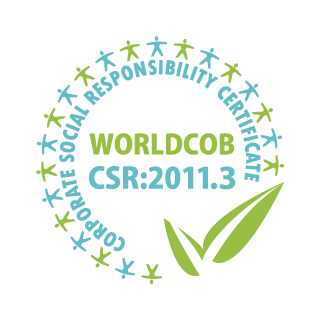
13 Mar Corporate Social Responsibility (CSR) is not just about isolated actions or philanthropy. For CSR to be truly effective, it must be integrated into the company’s culture, its values, its processes, and its daily operations
Build a CSR Culture in Your Company: A Practical Guide to Implementing Responsible Practices Every Day.
Corporate Social Responsibility (CSR) is not just about one-off actions or philanthropy. For CSR to be truly effective, it must be integrated into the company culture, its values, its processes, and the daily operations.
Building a culture of Corporate Responsibility requires a shift in mindset, where sustainability, ethics, and a commitment to society become the fundamental pillars for being recognized as a socially responsible company.




Steps to Build a CSR Culture
- Define your CSR vision: What does Corporate Social Responsibility mean for your company? What are your values and principles regarding sustainability, ethics, and social commitment? Establish a clear and concise vision to guide your actions.
- Secure commitment from top management: CSR must be driven from the top. Leadership commitment is essential for integrating CSR into the company culture.
- Create a Code of Ethics: A code of ethics defines the values and principles that guide the behavior of the company and its employees. It should be clear, concise, and accessible to everyone.
- Engage your employees: Corporate Social Responsibility is a commitment for everyone. Involve your employees in defining and implementing CSR initiatives. Establish communication channels so they can share their ideas and suggestions.
- Implement responsible practices in everyday operations: CSR must be present in all areas of the company. Implement responsible practices in resource management, the supply chain, customer relations, and community engagement.
- Promote diversity and inclusion: Diversity and inclusion are fundamental pillars of Corporate Responsibility. Create a work environment where everyone feels valued and respected, regardless of gender, race, religion, or sexual orientation.
- Communicate your CSR initiatives: Share your CSR initiatives in a transparent and authentic manner. Communicate your achievements and challenges with your stakeholders. Use social media and other channels to amplify the impact of your actions.
- Measure and evaluate your results: Assess the impact of your CSR initiatives and evaluate your results periodically. Use this information to improve your practices and ensure you are making a real, positive impact.
Examples of Daily CSR Practices
- Resource Management: Reduce energy and water consumption, implement recycling programs, and use sustainable materials.
- Supply Chain: Work with suppliers who share your CSR values, promote fair trade, and ensure dignified working conditions throughout your supply chain.
- Customer Relations: Offer sustainable products and services, inform your customers about your CSR practices, and promote responsible consumption.
- Community Relations: Support local communities through volunteer programs, donations, and social investments.
Conclusion
Building a CSR culture is an ongoing process that requires commitment, effort, and perseverance. CSR Certification brings countless benefits. A strong CSR culture enhances the company’s reputation, improves stakeholder relationships, drives innovation, and creates a positive impact on society.
Are you ready to build a culture of Corporate Responsibility? Visit our website to learn more about the WORLDCOB-CSR 2011.3 Certification (ESR Distinction) and begin your transformation toward a more responsible and sustainable company.


